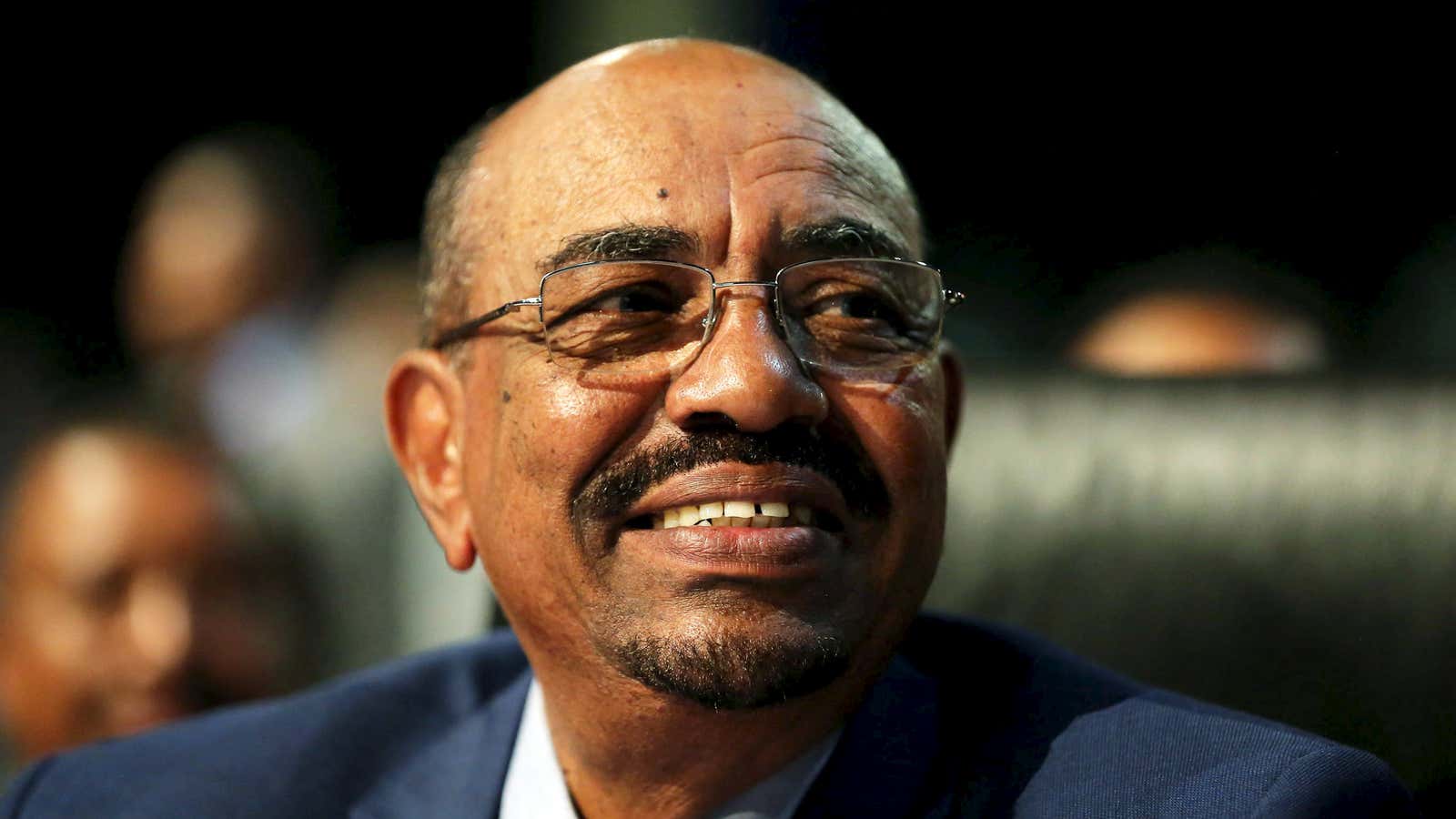Omar al-Bashir, the controversial president of Sudan wanted by the International Criminal Court (ICC) for war crimes and crimes against humanity, has reportedly left South Africa, despite a South African court ruling for his arrest.
This comes after conflicting reports about his whereabouts over the past 24 hours, and a court order barring him from leaving the country pending the outcome of the court’s decision.
The Pretoria High Court in South Africa has delivered its ruling in favour of al-Bashir’s arrest. But al-Bashir has left South Africa – defying a court order handed down yesterday – and is making is way to Khartoum, Sudan’s capital, where he is set to hold a press conference upon arrival, at around 6:30pm local time (15:30pm GMT), according to Sudan’s minister of state information, Yasser Youssef.
The urgent application in the South Africa’s Pretoria High Court to force local authorities to comply with the al-Bashir’s ICC arrest warrant ended this afternoon (South African local time) with a ruling for al-Bashir’s arrrest.
The court ruled in favor of the human rights group, the Southern African Litigation Centre (SALC), which filed an urgent application for the South African government to arrest al-Bashir.
The presiding officer, Judge Mlambo ruled that South Africa’s decision to not arrest al-Bashir was in contravention of its own constitution, and that South African authorities were compelled to arrest al-Bashir.
Ten minutes after Judge Mlambo had delivered his ruling, the lawyer for the South African government–advocate Mokhari–announced he had just received confirmation from the South African government that al-Bashir had left the country.
Judge Mlambo registered his disappointment at this–as the South African government had effectively ignored an order of the High Court by allowing al-Bashir to leave the country. Mlambo asked that the South African government provides information relating to al-Bashir’s time and port of departure within 7 days.
Conflict between ICC Treaty and diplomatic immunity
While South Africa, a signatory of the Rome Statute and ICC Act of 2000, is obligated to arrest al-Bashir, the South African government argued today that al-Bashir – like many heads of states attended the AU Summit – was granted diplomatic immunity by the South African government, and that this could not trump the ICC.
Granting al-Bashir diplomatic immunity and ignoring the ICC warrant–as well as the interim court order–contradicts South Africa’s own laws. In 2002, South Africa incorporated the Rome Statute into it’s own national law – effectively obligating South African security and legal institutions with the enforcement of the Rome Statute
Relating to crimes of genocide, crimes against humanity and war crimes the preamble of South Africa’s International Criminal Court Act states:
“…South Africa is committed to bringing persons who commit such atrocities to justice, either in a court of law of the Republic in terms of its domestic laws”
In an opinion piece, South African human rights lawyer Alan Wallis, argues that by granting al-Bashir diplomatic immunity and ignoring a high court order, South Africa’s executive interfered with its own laws.
“Ignoring South Africa’s commitments under the Rome Statute and the ICC Act sets a dangerous precedent and risks reducing all other international human rights treaties that South Africa is party to, to little more than paper promises, allowing South Africa to selectively pick and choose when and what it complies with,” writes Wallis.
Watch the full court hearing, as it happened, for al-Bashir’s detention below. (Footage by the South Africa news agency, eNCA)
